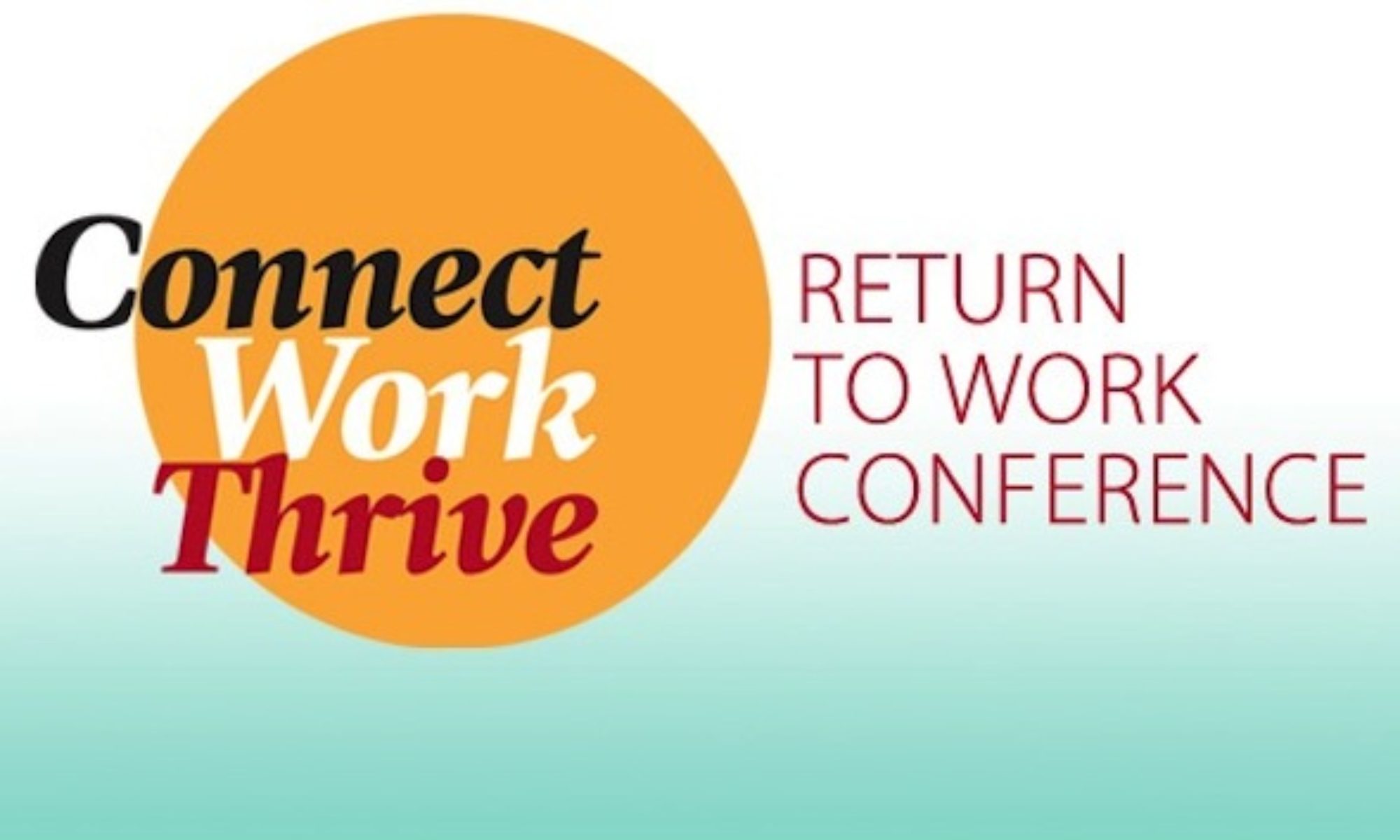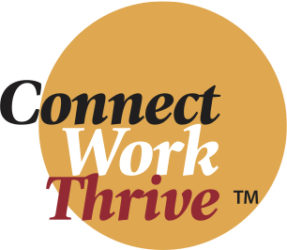Sharon Meers Megan Dean Farah


Sharon Meers is Head of Strategic Partnerships, eBay Enterprise
and co-author of Getting to 50/50
Guest blogger Megan Dean Farah attended the November 2013 Connect•Work•Thrive Return to Work Conference and was inspired to build her own global business communications consulting firm. She interviewed Sharon about her upcoming address.
Megan:
What do you, as a leader in both the technology and financial services industries, think we should be doing now to make it possible for people of all ages and ethnic backgrounds to participate in paid employment on terms that work for them?
Sharon:
We need to drive home the message that having taken time off from paid employment does not automatically pose a barrier to reentry. There are simply not enough highly intelligent, motivated people to solve all our world’s problems. If and when you want to return to work, please do. We need you!
A few years ago a friend of mine, a former Goldman Sachs partner, told me he had just hired a remarkable man to become the next chief counsel of this firm. When he first looked at the resume of the man he ultimately hired, he was puzzled by a seven year gap in employment.
“How can you expect me to hire you to be our chief counsel given that you didn’t work at all during the whole time that Elliot Spitzer was overhauling securities regulation?” He asked the candidate. “What were you doing all those years?”
The candidate replied, “I was learning to meditate. Once I decided to come back, I brought myself up to speed on everything I need to know.”
This man clearly believed that my friend’s firm would be better off for hiring him. I see many women have a hard time returning to work because they are not as confident as they deserve to be in their ability to learn fast and work hard. We live in a culture that encourages self-confidence in men, but often diminishes it in women. I want to fix that.
Megan:
Building awareness of our collective lack of self-confidence sounds like a good start. But how do we actually move forward to reach our goals?
Sharon:
Returning to work is like training for the marathon, getting yourself to eat healthily or learning to meditate. You put yourself on a program. When I identify some way in which I want to modify my own behavior, I pencil very specific milestones into my calendar and gather a group of friends who I know will help me do what I say I am going to do. It’s essential to approach your challenge very methodically. Of course you may need to change course part-way through, but that’s fine. You need a key element that Gloria Steinem and Sheryl Sandberg advocate: small groups of women supporting each other to reach higher.
- What makes you hopeful about the Lean-In phenomenon?
I am delighted to see lots of women around me who are realizing that the patterns that have come before them are not the patterns that have to apply to them. I also see a lot more men valuing women as peers and leaders at work. I don’t know how true that was even twenty years ago.
At long last we are pulling ourselves out of the cycle of simply bemoaning the absence of women in the upper echelons of corporate America and asking ourselves what each of us individually can do to make our workforce more inclusive.
I was sitting in Charles de Gaulle airport in Paris recently and noticed that an American man next to me was reading Sheryl Sandberg’s Lean In. We chatted a bit. He told me that his wife was at home taking care of their three children. He had decided to read the book so that he could encourage the women he works with in his office to keep working. He does not want to lose their talent.
For me, the bottom line is that we need to break down the barriers in our heads. Too many of us shy away from opportunity for fear that it requires more than we can give. I do that too. The difference is that I have taught myself to pause and consider whether I am protecting myself from some challenge that seems uncomfortable.
I ask myself, “How many times in a year do I really want to go to my children’s school? How many times do I really need to go on business trips?”
There is no sacrosanct rule. You get to decide and apply the rules that makes sense for you. Following the rules that you think everyone else is following is invariably limiting. So ask yourself how you want to tweak the rules to meet your needs.
Megan:
What do you say to people who argue that you can’t possibly translate your experience and advice in meaningful ways to average people who are just scraping by?
Sharon:
Leaning in is good for women across socio-economic lines. I don’t believe there is such a great divide between so-called elite and non-elite women. Certainly when I look across the generations and branches in own extended family, I see women with varying levels of access to resources. No matter what education and experience we have, all women should feel empowered to advocate for themselves and – for those women who have also chosen to be mothers – for their kids.
Yes, of course throwing money at a problem can often be a fast route to solving it, but resourcefulness comes in many forms. When Joanna Strober and I were writing Getting to 50/50, we spent a lot of time talking to people in professions that are not highly paid: school teachers, nurses, non-profit workers. These conversations enabled us to feature many success stories of women and men in our book who had, intentionally or not, limited their financial resources but nevertheless were still able to make themselves more upwardly mobile.
Men have lots of rags-to-riches Horatio Alger stories. Women need those stories too – no matter where we start, success should be as accessible to poor girls as it is to poor boys.
We need more stories about scrappy, successful women.
Megan:
My mom scoured bookstores looking for children’s books with strong female protagonists for me when I was a little girl. But she couldn’t find enough so she resorted to changing the gender identities of the protagonists in adventure stories she really liked when she read aloud to me. Jack became Jill and so on. You can imagine how startled I was to discover her edits once I was able to read independently, and how much I have admired resourcefulness ever since.
Sharon:
Your mom sounds like a neat lady.
Megan:
She is. So is my dad. They’re a great team in the model of Getting to 50/50 long before you ever wrote your book!
Sharon:
I see many heartening examples of successful women and couples pursuing their dreams. That said, our culture still holds successful women and men to different standards. When Jack Welch writes a book, I don’t hear men saying that Welch is an elite man so his experience does not apply to “regular” men. Regular men are eager to hear – and emulate – Jack Welch.
Megan:
I love the title you gave your talk for the next Connect Work Thrive Conference: “Excel at Your New Job, Be Home for Dinner.” Do you really get home for dinner? What do you eat?
Sharon:
I do get home for dinner although I’ll admit that it takes quite a lot of planning.
When my husband and I got married, friends and family advised us to set up weekly one-on-one meetings with each other to plan the week’s schedule. At the time, I thought the idea sounded ludicrous. But it has turned out to be key.
About ten years ago, we came up with a budget for how often we allow ourselves to miss family dinners. This makes us both individually accountable for making an effort to make it home in time most nights. Asking myself, “do I really have to be at that business dinner or can I just show up for drinks?” enables me to make it home to eat with our kids.
We eat very simple food. We are not above having breakfast for dinner. If it were up to me, we’d just eat omelets. Whatever the theme of the meal is, it usually involves a lean protein, some form of leafy green, and lots of quinoa. And, of course, we do eat out a fair amount. That said, family dinners have gotten a lot easier now that our kids are 11 and 13 years old and capable of being sous chefs. I try to enlist them to chop vegetables.
Megan:
Thanks, Sharon! I look forward to meeting you at the next Connect-Work-Thrive Conference on October 22, 2014, where talented community members, women and men alike, will support one another in charting out the next steps to taking control over their own professional lives.

